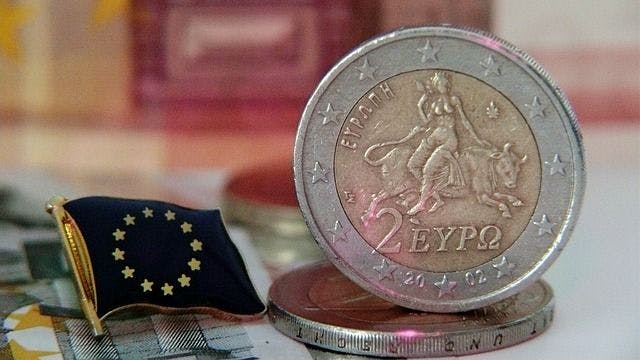Is it possible to think that the money in your bank account is different from the cash you hold? Well, one of the fundamental ideas of modern banking is that the balance an individual holds in a bank is the same as cash. An IMF economist is proposing a change to this in a bid to tackle inflation in an economic depression, the basic idea is that since interest rates are low and it is impossible to reduce the rates further if another economic downturn happens. The solution put forward by the economist is of negative interest. But there is one problem, this will only affect deposits in banks what about cash. This is where the wonderful plan comes into action.
Dual Monetary Base
The blog post was published in February by Ruchir Agarwal, an economist at the IMF, and Signe Krogstrup, an advisor in the Research Department at the Fund. During the time of financial recession, what most central banks do is reduce the interest rate, this reduces the returns one gets through the bank. This creates a situation where people are forced to spend money and hopefully this spending creates economic growth. But interest rates are lowest around the world after the financial crisis of 2008 and if another crisis comes, there is no room for central banks to cut interest further. The blog proposes a negative interest rate, this would mean that one has to give money to the banks similar to taxes for keeping money with them. The problem with this is that it might be perfect for a cashless society but almost all countries in the world rely on cash. Cash has zero nominal interest, so the only way banks can charge any interest, in this case, is by making cash withdrawals inconvenient and costly, like through various fees. And now it gets to the interesting part. Since cash flows freely through the economy and since banks cannot directly regulate them, in order to implement negative interest rates, the author proposes a dual monetary base. A dual monetary base means that the money in bank and cash in hand will be treated separately, for example, if someone has $100 in the bank and if banks charge -3% after a year, it would turn into $97. Let’s assume the cash in the bank is considered as E-dollars, now when someone tries to exchange $100 with e-dollars after a year, they will only get $97 e-dollars. This creates a dual monetary base (dollar and e-dollar), the idea behind this proposal is that if someone holds money in hand over a year, they will lose 3 dollars and this forces them to spend. Although Ruchir Agarwal works at the IMF, there is no indication yet that this is the official position of the organization in this matter.
Is it practical?
This blog post seems a bit silly in the fact that it is almost impossible to implement. The said proposals would require changes in the law of many countries regarding the definition of money. How this will affect the monetary system is something to be seen as the principal value of a fiat currency is the trust in a central government, the repercussion of the statement ”I owe the bearer” a set amount of money no longer being true is inconceivable. It will create a quick capital flight from whichever jurisdiction it happens in creating more economic hardship than it solves. But we all have to remember if anybody said before 2008 that the governments can print unlimited paper money, the idea would have been outright rejected yet we live in a world of quantitative easing. There could be a future where the proposals set forward in the blog post will be implemented.
There are other issues with the said proposal where instead of holding cash, people could buy gold or real estate. But holding gold or real estate has its cons, gold although substitutes for cash is not liquid and does not have the ability to buy a flat or a house. This is where crypto comes in. As an alternative, it can act as a store of value and at the same time act as a cash substitute. This goes to show that in the future, economic policies should take into consideration crypto in every process as it represents a complete paradigm shift from traditional economics. Failing to do so will create huge consequences.
Follow us on Twitter, Facebook, Steemit, and join our Telegram channel for the latest blockchain and cryptocurrency news

